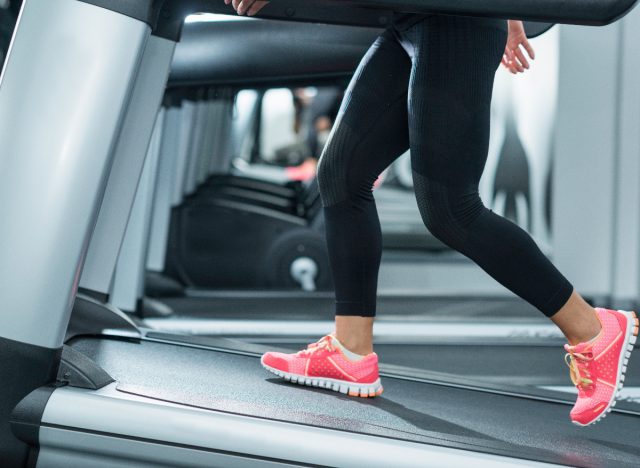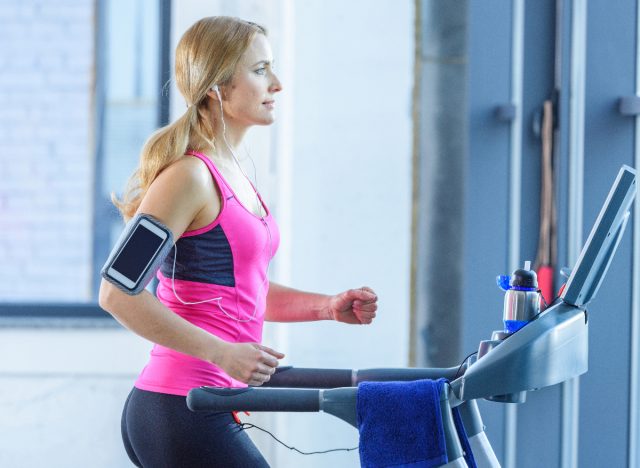The Best Treadmill Incline Setting for Weight Loss

When shedding extra pounds, the treadmill is a tried-and-true piece of equipment that has stood the test of time. However, if you want to get the most out of your treadmill workouts, you need to unlock the secret weapon many overlook: incline settings. Sure, running or walking on a flat surface can be beneficial, but if you're after noticeable results, adding an incline can elevate your routine to a whole new level—literally and figuratively.
Imagine transforming your indoor run into a challenging uphill climb without leaving the comfort of your home or gym. Adjusting the incline doesn't just burn more calories; you engage a wider range of muscles, particularly in your legs and core, making each step more efficient and effective. It's like turning your regular walk or run into a hike up a steep hill, which naturally demands more from your body and boosts your cardiovascular endurance. The increased intensity torches calories faster and builds strength and stamina.
Whether new to the treadmill or a seasoned pro, finding the right incline setting can significantly impact your weight-loss journey. But what's the best incline for burning fat and building endurance? In this article, I'll break down the optimal incline settings for different fitness levels, discuss the importance of pairing incline with the proper speed, and share tips to help you get the most out of your treadmill sessions.
The optimal incline setting for weight loss:

For beginners who are just starting, an incline setting of 2% to 3% is a great place to start. This slight incline mimics the natural terrain you might encounter outdoors and helps increase the intensity of your workout without being overwhelming. Start walking at a moderate pace on this incline and gradually increase the duration of your workouts as your endurance improves.
An incline setting of 5% to 7% for more advanced fitness enthusiasts can significantly boost calorie burn and engage the lower-body muscles more intensively. If you're comfortable with running, try incorporating intervals where you alternate between a flat surface and a higher incline. For example, run at a 1% incline for a few minutes, then increase to 6% for a short, intense burst before returning to the lower incline. This method burns more calories and improves your cardiovascular fitness and muscle strength.
Remember, the key is to challenge yourself while listening to your body. Finding a balance that pushes you out of your comfort zone but doesn't lead to injury or burnout is essential. Adjusting the incline and mixing in different routines can help you stay motivated and continue making progress.
It's crucial to set your incline with the proper speed.

Setting the incline is just one part of the equation; pairing it with the right speed is crucial for effective weight loss. Walking or running at too slow a speed on a high incline can reduce the effectiveness of your workout, while going too fast can lead to injury.
A moderate walking pace of 3.5 to 4 miles per hour at a 2% to 3% incline is a good starting point for beginners. This combination ensures you're working hard enough to burn calories but not so hard that you risk overexertion.
As you become more comfortable and your fitness level increases, you can experiment with faster speeds and higher inclines. For instance, try walking at 4 to 4.5 miles per hour at a 5% incline or running at 5 to 6 miles per hour at a 3% to 5% incline. The goal is to find a challenging yet sustainable pace that allows you to maintain proper form and endurance throughout your workout.
Interval training is another effective strategy. Alternate between high-intensity running or walking at a steeper incline and lower-intensity recovery periods on a flat or lower incline. This method keeps your heart rate elevated and maximizes calorie burn. For example, run at 6 miles per hour at a 6% incline for one minute, then recover by walking at 3.5 miles per hour at a 1% incline for two minutes. Repeat this cycle for an effective fat-burning workout.
Maximize weight loss on the treadmill with these tips:

To get the most out of your treadmill workouts and maximize weight loss, consider these tips:
1. Incorporate variety.
Mixing up your routine excites your workouts and challenges different muscle groups. Alternate between steady-state cardio, intervals, and different incline settings to prevent plateaus and continually push your body.
2. Track your progress.
Keep a workout journal or use a fitness app to track your incline settings, speeds, and durations. Monitoring your progress helps you stay motivated and make necessary adjustments to improve.
3. Focus on form.
Proper form is crucial, especially when using higher inclines. Keep your back straight, engage your core, and avoid leaning too far forward. Proper form prevents injuries and ensures you're effectively targeting the right muscles.
4. Stay hydrated and fueled.
Drinking plenty of water before, during, and after your workout is essential for performance and recovery. Additionally, fueling your body with a balanced diet rich in proteins, carbs, and healthy fats supports your weight-loss efforts and gives you the energy needed for intense workouts.
5. Set realistic goals.
Setting achievable goals helps maintain motivation. Whether increasing your incline, extending your workout duration, or losing a certain amount of weight, having clear objectives can guide your training and provide a sense of accomplishment.
6. Be consistent.
Consistency is the most critical factor in any fitness journey. Make a habit of including treadmill workouts in your routine several times a week. Regular, consistent exercise is key to seeing and maintaining results over time.
By incorporating these strategies and regularly adjusting your incline and speed settings, you'll be well on your way to achieving your weight-loss goals on the treadmill. Stay consistent, challenge yourself, and enjoy the journey to a fitter, healthier you.









